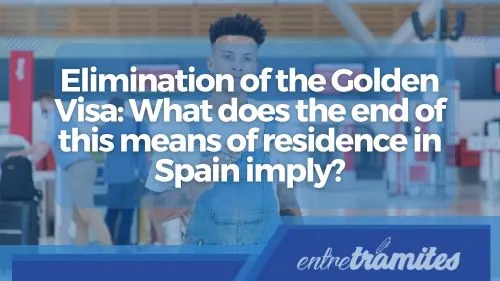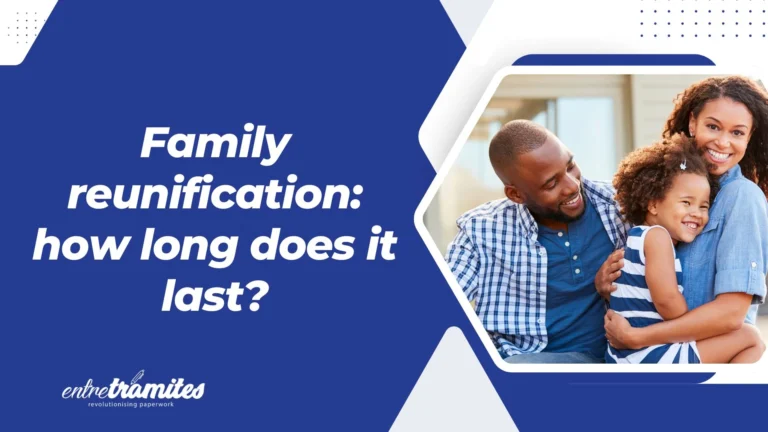In April 2024, the Spanish government announced a key decision on immigration and housing policy: the elimination of the golden visa, a residence permit granted to non-EU citizens who made significant real estate investments in Spain. This measure has generated widespread debate both in the real estate sector and among international investors, and marks a significant shift in the strategy for access to residency for economic reasons.
In this article we explain in detail what the golden visa is, why it has been eliminated, how it affects investors and what alternatives currently exist.
What was the golden visa and why was it eliminated?
The golden visa was introduced in 2013 with the aim of attracting foreign investment to Spain during the economic crisis. It allowed non-EU citizens to obtain legal residency in exchange for investing at least €500,000 in real estate. This policy also facilitated access to public services and free movement within the Schengen area.
However, more than a decade later, the context has changed. The main argument of the Executive to push for the elimination of the golden visa has been the growing pressure on the real estate market in big cities. According to data from the Ministry of Housing, more than 94% of the golden visas granted until 2023 were due to home purchases, especially in areas such as Madrid, Barcelona, Malaga and the Balearic Islands.
This situation has contributed to making access to housing more expensive for local citizens, which has generated criticism from social movements and urban planners. Prime Minister Pedro Sánchez stated that the measure aims to guarantee the right to decent housing, as stated in article 47 of the Spanish Constitution: ‘All Spaniards have the right to enjoy decent and adequate housing. The public authorities will promote the necessary conditions and establish the relevant rules to make this right effective by regulating land use in accordance with the general interest in order to prevent speculation. The community shall participate in the capital gains generated by the urban development activities of the public authorities’.
What is the impact for investors?
The elimination of the golden visa does not affect retroactively. In other words, people who have already obtained a permit under this regime will be able to renew it as long as they meet the established requirements. However, from the entry into force of the reform (scheduled for mid-2024), it will no longer be possible to apply for new visas through real estate investment.
This has generated uncertainty in the sector, especially among developers and agents targeting foreign clients. Other European countries are also expected to reconsider similar measures, as the European Commission had already expressed concerns about the possible misuse of such programmes.
Alternatives after the elimination of the golden visa
Although the option of residency for real estate investment disappears, there are still other legal ways for non-EU citizens to reside in Spain:
- Digital nomad visa: introduced in 2023, this allows remote workers collaborating with foreign companies to reside legally. More details in our article on the visa for digital nomads in Spain.
- Permiso por arraigo or Family arraigo in English o por reagrupación familiar, known in English as Family Reunion: aimed at those who already have ties in the country.
- Qualified work: Focused on technical or academic profiles.
- Residence for business investment: still maintained for those who create companies that generate employment or have a strategic impact.
- These alternatives reflect a paradigm shift: attracting talent and entrepreneurship over and above mere real estate capital.
Recent examples and European comparisons
In recent years, countries such as Ireland, Portugal or Greece have reformed or eliminated their golden visa programmes. In the case of Portugal, the decision to abolish it in 2023 responded to similar concerns about access to housing in Lisbon and Porto.
Spain thus joins a European trend that re-evaluates the real benefits of these policies against their collateral effects. The authorities insist that this is not a measure against foreign investment, but a way of channeling it into more productive and less speculative sectors.
Frequently Asked Questions (FAQs)
What happens if I already have a valid golden visa?
You will be able to keep it and renew it, as long as you continue to meet the established requirements. The reform is not retroactive.
When did the elimination of the golden visa come into force?
The measure to eliminate the golden visa in Spain was announced in April 2024 as part of a package of reforms to curb property speculation. After its parliamentary processing, the elimination officially came into force on 3 April 2025, with the publication of Organic Law 1/2025 in the Official State Gazette (BOE) in Spanish as Ley Orgánica 1/2025 en el Boletín Oficial del Estado (BOE)..
The elimination of the golden visa represents a significant change in Spanish migration and economic policy. While it puts an end to a direct route to residency through real estate investment, it also opens the door to a more sustainable model, focused on attracting talent, innovation and social cohesion. For those who wish to reside in Spain, there are still various legal options adapted to different profiles and needs. Being well informed is the first step towards making the right decisions in this new scenario.
At Entre Trámites we invite you to learn about our services. Fill in our contact form and we will call you to help you as soon as possible, schedule a free online consultation, or simply text our WhatsApp.





